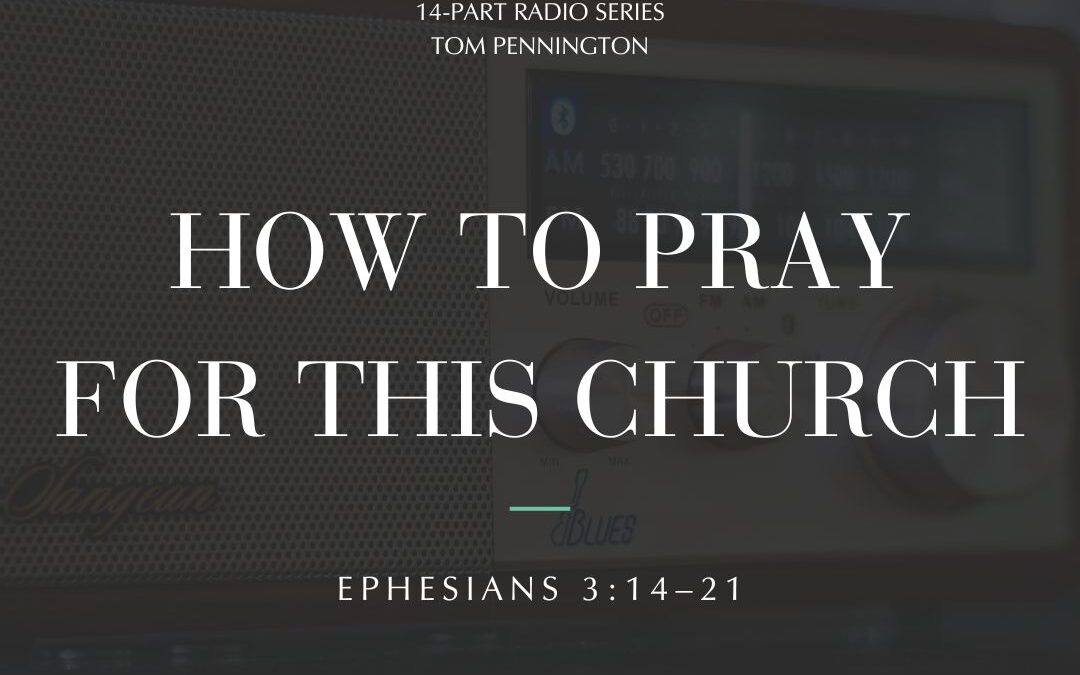
Part 1
At its heart, Paul’s prayer gives us several foundational principles of effective prayer that we must earnestly seek to implement in our own lives.

At its heart, Paul’s prayer gives us several foundational principles of effective prayer that we must earnestly seek to implement in our own lives.

The overwhelming teaching of the New Testament is that God’s people regularly approach Him through prayer, which is made possible by the life, death, and resurrection of Jesus Christ. For the apostle Paul, prayer was just as essential as eating food and drinking water.

In Ephesians 3, Paul describes how the New Testament church is the stage on which God displays Himself—not only to human beings but even to angelic beings. In other words, God uses the people of His church to present His glory and to display His glory to the world.

Many people take great measures to ensure they are eating the right foods and committed to regular exercise to maintain a proper physique. The New Testament requires, however, that Christians be committed to certain disciplines to maintain their spiritual lives, including prayer.

The heart of the beginning of the apostle Paul’s prayer in Ephesians 3 is that every Christian would be committed to and diligently exercise the Christian disciplines that God has given His people—specifically prayer.

Sanctification, or spiritual growth, is a major theme in the New Testament. The apostle Paul understood the importance of growth in the Christian life, which is why he prayed for such growth in Ephesians 3.

The Bible teaches that the Christian life and the pursuit of sanctification are works of God that require dedication on the Christian’s part. And just like the physical body grows slowly over time, the believer’s spiritual life happens in the same way.

In Ephesians 3, the apostle Paul prays that the Ephesians—and all true Christians and all true churches of all ages—will understand the depth of the love of God in Christ Jesus. For us, as Christians, we have come to know God’s love in Christ because Christ died of our sins and has given us new life.

The apostle Paul believed that understanding the love of God was a non-negotiable part of the Christian life. He understood God’s love to be foundational, and in Ephesians 3, he prayed that there wouldn’t be a single Christian who would neglect such a reality.

In Ephesians 3, Paul prays that every Christian will understand the magnitude of God’s love and that they will grow in their walk with Christ because of it.

In Ephesians 3, Paul uses that very expression in his profound prayer to God. Unfortunately, this expression has been often misunderstood and misapplied in Christian circles. But at its heart, being filled with the fullness of God means that we, as Christians, can enjoy living out the moral attributes of God.

The Bible often speaks of God’s people walking or growing in godliness or Christlikeness—that is, as Christians, we ought to be confirming our hearts and lives to the person of Jesus Christ.

At the end of Paul’s powerful prayer in Ephesians 3, he calls for the entire congregation to affirm together what he has rehearsed about the character of God in his prayer.

At the conclusion of the apostle Paul’s prayer to the Ephesians, he offers a wonderful doxology of praise and adoration to God the Father. Here, he calls all believers of all times to celebrate the profound character of God.
Recent Comments